Plan & Plant Now for Sustainability, Freedom, and a Backyard Revolution
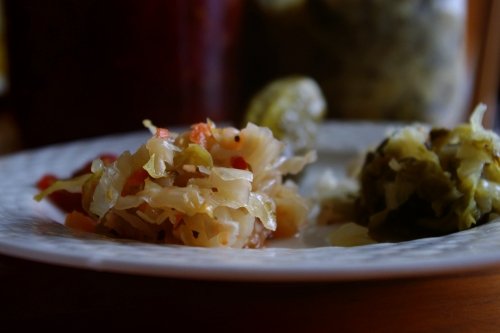
I am not an expert gardener and have only spent the last few years taking a stab at preserving what we eat and eating what we preserve. Every year, though, I grow more and more excited because every year we are learning, producing, and preserving more.
I have learned that amazing things can happen when you simply choose to work at producing and preserving foods rather than spending time doing other things. I have been greatly encouraged and informed by the new book Surviving Off Off-Grid. I have watched the reaction to this book’s release and I believe that people are hungry (pun intended) for a different way of life.
Why Does It Matter?
Our family desires to live a simple, debt-free, agrarian way of life. This will allow my husband to be at home alongside the children and myself, working for our basic needs with our own two hands. More importantly, though, it allows us to rely directly on God’s providence for our very basic necessities without the distraction and corruption so prevalent in our consumer-based society.
It is our family’s goal to be producers rather than consumers. While we currently reside just outside of a large city, we chose to rent an older duplex with a backyard available for gardening and while my husband works an 8-5 desk job, he also does a lot of the manual labor of gardening and I do garden upkeep, harvesting, preserving, and cooking.
By beginning our journey with food production, learning to buy from local farmers and eat seasonally, and learning the most sustainable methods of food preservation, we have learned that it is possible to start at zero and work your way to grocery store independence.
It Doesn’t Have to Be All or Nothing

Like I said before, I am not that experienced of a gardener. With all of our other responsibilities we have not taken the time to learn the intricacies of organic gardening. We lost our entire cabbage crop (12 giant heads) last year to pests and just when our four cucumber plants looked like I’d be pickling dozens of quarts, they up and turned yellow and completely died on us. It was a sad day.
So we do what we can. We tear up ground with hand tools, add some compost, plant some seeds, water when there’s time, and wait to see what happens. Last year we were able to grow much of our own produce needs for the summer, but I relied on local farmers for most of what I preserved.
Three Sustainable Methods of Food Preservation
In my book Simple Food {for winter} I go into detail about the benefits of choosing these three sustainable preservation methods:
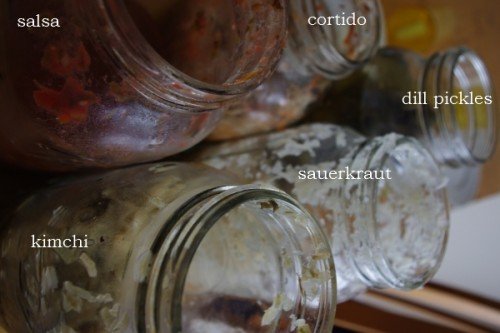
Lacto-Fermentation.
If you would have told me five years ago that we would have fallen in love with fermented vegetables I would have said you were off your rocker. I have written an article for beginners, I have posted recipes for salsa and kimchi, I have shared 5 tips for delicious lacto-fermented dill pickles, I shared my sauerkraut method in Simple Food {for winter}.
I can not say enough about how easy and sustainable this method is, not to mention how incredibly beneficial fermented vegetables are not only for your digestive health, but your immune system and your energy as well. And these things keep for a very long time in cold storage – see mine at 7 months old.
Dehydration.
How hard can it be to chop fruits & vegetables and throw them into a dehydrator? Not very and that’s why I’m a fan. When I’ve got 45 zucchinis staring me in the face, I dehydrate them. When we’ve picked 10 pounds of blueberries at the local farm, I dehydrate them. When our turnips showed signs that our makeshift root cellar wasn’t going to keep them as long we hoped, I dehydrated them. When I came home with a ridiculous amount of apples from my father’s trees, I dehydrated them. And then I made pie out of them in January.
Root Cellaring.
Dig a hole deep enough to go below the frost line and in a way that keeps water out and you have a root cellar. We kept potatoes in our miniature root cellar this past winter for a few months. All my husband did was dig a hole, fasten some plastic around the opening to keep it dry, and drop our bushel of potatoes in the bottom. This experiment wasn’t entirely successful, but it did work for a short time, and will have us digging a root cellar as soon as we get on some land.
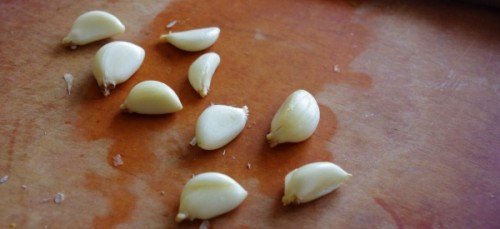
All three of these can be done with or without electricity, do not require you to stand over a boiling kettle in August, and preserve and actually increase the the nutrition of the foods you are preserving.
I canned tomatoes and apple butter this past summer. The rest of the food was preserved with one of the above methods and we were able to feed our family without a single grocery store trip for two months. And we will still have enough dehydrated and fermented vegetables to last us through our earliest spring harvests.
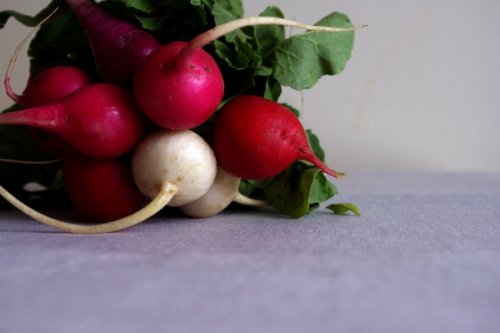
Why Now?
Side note: While I’d love to go on for hours on this topic, there is simply not enough space. For more on how I use dehydrated, fermented, and root cellared foods for nutrient-dense winter meals check out Simple Food {for winter} and look out for the spring edition in April.
It is early spring (very early for us northerners), and yet here I am talking about preserving food. What you plant (and plan for) now, though, will determine how you eat next January. You can start fermenting radishes and dehydrating spring onions and even spinach if you have more than you can eat.
After these early crops have been harvested you can add some more compost, throw in some cucumber and tomato seeds and every week that you harvest or head to your farmers market you can put aside a jar or two of fermented or dehydrated foods. Grow winter squash, bulb onions, garlic, potatoes, turnips, apples, and beets for your root cellar.
Every seed you plant is a step towards sustainability. Every jar you ferment is freedom from more consumerism. Truly this newness of spring is the time to start a revolution… right in your own backyard.
What are you planning & planting for your revolution?
Other Related Posts You May Enjoy
- A Tale of Two Gardens part one and part two
- How to Plan Your Garden part one and part two
- Organization in the Garden: Evaluating What You Have and What You Need
- Getting Organized in the Garden: Seed Starting and Planting Schedule
- Naturally Controlling Pests in the Organic Garden
- 5 Steps to Being a Lazy Gardener
- Gardening in Less-than-Ideal Spaces
- 7 Gardening Lessons from a Novice Gardener
- Selecting Seeds for Garden Success
- Gardening with Herbs 101: Where to Begin
- Gardening with Herbs 101: What To Grow
- How to Plant a Garden that Works for Where You Live
- 7 Reasons to Square Foot Garden

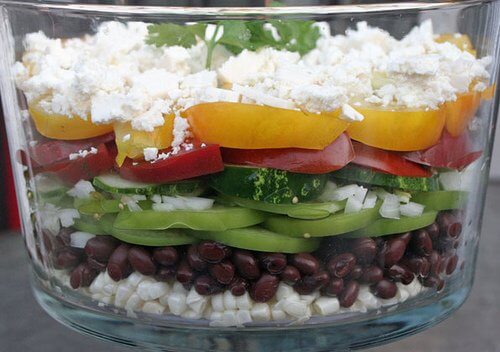
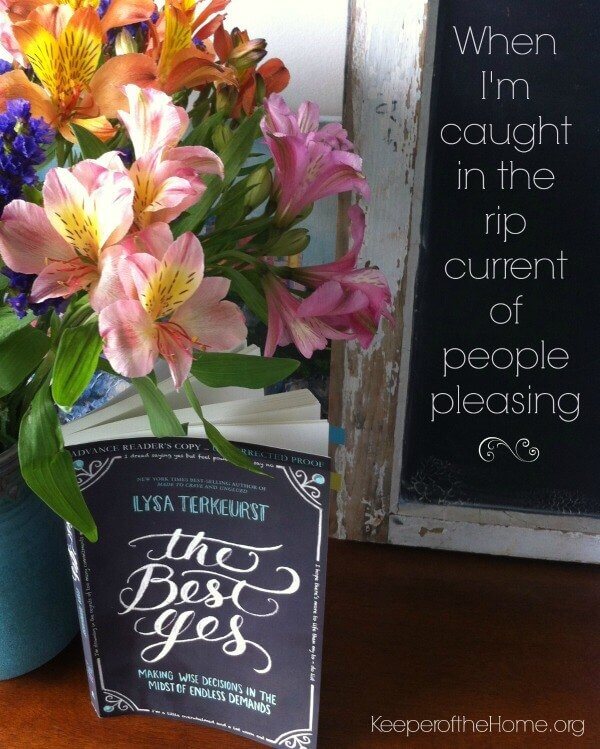
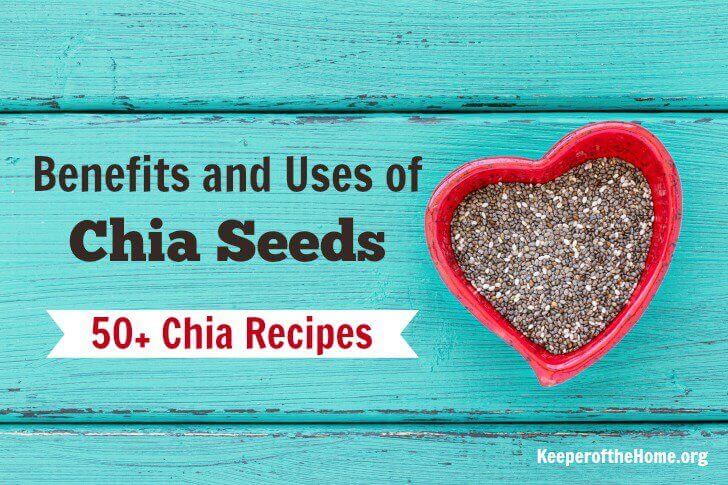


We loved gardening last year and preserving all our tomoatoes, some carrots, applesauce, salsa, and pickles! I am looking forward to canning much much more this year! I have a huge dislike for grocery stores… why buy it when i can grow it myself. I have actually come to dislike a lot of the farmers markets as well, as they are moving from the actual farmers to those who buy from farmers and resell and then there are the artsy part… It just isn’t what it used to be… 🙂 I pray and hope you have a very very successful garden this year!
Have a blessed day!
I am so excited to start gardening again this year. We gardened when I was a kid living in Alabama (were we had a very long growing season!!!) and we had a HUGE garden. We have a large backyard again, but the soil is awful so we will be building 5 raised beds. We are having a daily table bed (tomatoes, beans, peas, corn, lettuce, onions, peppers), a Fall Harvest bed (cantaloupe, watermelon, pumpkin, cucumbers, zucchini, squash), a Berry bed (strawberries, blueberries, blackberries- we will actually probably build two 2 x 4 beds for this one so we don’t have to try to reach through prickly blackberry bushes to tend the blueberries! This one also can’t be planted til the fall since we missed the late winter planting time!) And then we will be planting an herb garden as well…looking forward to cooking with lots of fresh herbs this year, and drying the extra for future use. I can’t wait to can and freeze and dehydrate…it’s going to be a fun and interesting summer! I hope your garden does wonderful this year!
I’m planning for a different revolution right now. One revolution at a time. There is so much I want to do and learn and only so much time. So we make little steps forward. The next step is to bring my husband home and start earning a living together. Which is what we are doing right now, which requires a huge life changing move. Next year 2012 I plan to direct energies once again to food production and community connections.
@renee @ FIMBY, PS. What if your family’s goal isn’t an agrarian lifestyle? This is something it would be fun to discuss sometime or to have someone else’s perspective. Ie: Another woman with a husband who has no desire to farm, whatsoever.
I’d like to learn what I can do (without doing it all myself) while still supporting my husband’s dreams and desires for our family which do not involve him planting and harvesting food. Which, I want to be very clear, I have no disrespect or disappointment in him for that. He is an amazing provider and has other alternative, sustainable ideas but him digging a lot in dirt is not part or our plans.
@renee @ FIMBY, Renee, your current revolution is our next revolution and dare I say more important (imho).
To address your question of supporting your husband while doing what you can my first thought is just follow his lead. Being an agrarian is my husband’s desire and so it is mine.
You don’t have to grow all your own food to support your husband’s desire to be home with your family. But it probably would help support that dream because you would then be free from having the need for cash to buy food. KWIM?
p.s. I am so excited for you guys :).
@Shannon, Oh Shannon you are so gracious. Can we get together for tea and talk kids, husbands, following our dreams and living life according to vision and God’s leading?
Totally KWYM (I had to google KWIM). D & I have talked about how we can grow more of our own food to free us even more from “the system” – which is our ultimate goal. He loves the technology of greenhouses. I can’t help it he’s a techie to his core.
I hope I didn’t misrepresent D. here. He’s even told me in the past he would help in the garden but I don’t want to say to my husband “you need to do this”. But I have no problems learning individually and taking responsibility for growing some of our food. Thank you for reminding me it’s not all or nothing.
D. is all for supporting local farmers (even at a greater cost financially – all of which he earns right now) and for that I am very grateful.
It’s a journey Shannon and I’m so grateful for you taking the time to share yours with the wide world and encourage us all and stretch us in our thinking (especially with that off-off grid stuff).
Anyway, I can ramble on and on here but you know my heart.
@renee @ FIMBY, It wouldn’t let me reply down below, so am doing it here.
I was just thinking about this and it reminded me of a section of Surviving Off Off-Grid where Mr. Bunker talks about whether everyone has to be a farmer or not. I will try to sum it up as best I can.
He says that there will always be those who are needed for special skills, but that these should exist in an overarching agrarian society, which is the opposite of our industrial, non-renewable resource-dependent society. So while a Dr., midwife, carpenter, etc. would work in that sense their family would also attempt to at least grow some of their own food in the form of a garden. And then trade and barter for services and goods would exist to fill in the holes of the food and goods that one can not grow.
I hope I didn’t botch that too bad. The book is a must-read.
Anyways, all that to say that your love and support of your husband is the most important thing (I believe) as his helpmeet and it is clear that you are trying to give him both.
And, yes, come over for tea please :).
My husband and I are only into our second summer of gardening, but we hope to have enough to preserve this year. Thanks for all of the great info.
I am all about fermented foods. They are so beneficial for one’s digestive tract.
Finding ways to work around your current living situation to accomodate a root cellar is impressive. It might be time-consuming preparing it, but you reap the benefits in the outcome.
Thanks for sharing!
http://faithfulsolutions.blogspot.com/
I’m curious who the author might be of the book you mentioned…Surviving Off Off-grid? Thanks!
@Nance, His name is Michael Bunker and he’s been living off-grid for about 5 years now. You can check it out at offoffgrid.com.
This year is my first to garden. We just got a house so we finally have the space. I’m hoping it’s not an epic failure… even if it is, I’ll start again next year. My great-grandmother was an excellent gardener (they kept a farm too) and I wish I would have paid more attention as a kid. We helped her out a lot but I didn’t think to ask how and why questions at that age (it is doubtless I would have remembered thanks to pregnancy brain!)
Love this post, Shannon. Even though we have no plans to live entirely off the land or to go off-grid as a family, I am definitely working to grow as much as I can in our rented, suburban backyard, preserving as well as growing. My husband is also not one who desires to be working the land himself, but he is very supportive of my desire to garden intensively and he loves to eat the results. 🙂
Like Renee, our family’s first goal is to entirely support ourselves as entrepreneurs, but we feel similarly in that we want to be producers and not simply consumers. We don’t anticipate being able to provide for all of our family’s needs, but we do want to have a productive family business, grow what we can and consciously support good growers with our grocery dollars.
I like what you were saying, Shannon, about whether or not everyone has to be a farmer (your quote sounds reasonable- now I want to read the book even more, though I already read most of the first two chapters in the Amazon review copy). I think that it goes without saying that we will always need those who are skilled in other areas, as well as those who grow and produce food full time, but that every family should seek to grow something. If we are doing what we can to be truly productive and add to the local economy, then I think there will be a natural balance of production of goods and provision of services, and an economy that supports it all.
Wow, what an encouraging and inspiring post! My boyfriend and myself are often discussing how, in the future, we could learn how to live “off the grid” and survive on our own. For me, it’s a dream I’ve had since I was a very young girl. Even though I live in an apartment with no yard space, I will be utilizing my balcony for potted gardening. I’m learning a lot already in preparation for this and am so thankful to live in a community that supports and teaches those who are new to gardening and food preservation. Thank you for all your information and encouragement!
I just posted about our garden dreams for this year…and happened to read this too (I linked to your article)! Though we have a 5 week old baby, we also have many other kids who are very eager to get their garden gloves on. We’d hoped to maybe move to a place with some more space this year but it hasn’t worked out so we are making the most of what we have and planting 6 square foot garden beds. Our big investment is in good dirt, we don’t have it, so we’re buying and mixing up our own this year in hopes for a better yield.
@karissa, Dirt is a big investment, but worthwhile. I had to buy good dirt for my new raised beds this year, as what I have where I live is terrible and the landlords don’t want us tearing up the yard anyways. I bought mine by the truckload from a reputable local nursery, and it was about $250, to fill 3 4×4 beds and 2 3×7 beds.
Great article.
I have a question about dehydrators and what kind you use as I’m thinking about buying one. Most of them have the plastic shelves and I’m concerned about BPA. What kind do you use? Are some BPA free? Or do you have to spend more money to have shelves made of metal?
We’re relatively new to gardening too, I still have at least one CSA share as
insurance..ours is one where you can select which produce you want in your share, which makes it nice for food allergy families and to balance out the garden. You may want to check into for your garden if you aren’t already doing that. Another thing that can sometimes help keep you from losing your entire crop is to plant in multiple locations – so if you lose part of your cucumber crop in one corner, perhaps the pests won’t find the plants in the other far corner of the garden.
Happy Gardening!
I am pretty sure I got the idea of growing more veggies from you last year – growing and preserving. I have started some seeds inside and can’t wait to get them outside. I saved tomato and pepper seeds last year and have started them. I am also starting beets and a variety of herbs. We started a compost for the first time last year and it’s ready to go in the garden. In the past I made the mistake of trying to grow a garden in horrible clay dirt filled with rocks. No wonder they didn’t do well. We have really been working the soil.
We have a great farmers’ market here. It is really growing and I have gotten to know some of them. I will have to supplement what I can’t grow from them. I also love to ferment foods. Last year I did pickles for the first time and can’t wait to do it again.
I read the Off-Off Grid book since I won it and it’s really fascinating, but also disturbed me some. Most people are not thinking that the resources we have now may be gone one day and how will you survive. I don’t know that we can ever get off off grid but I want to find a way to be more self reliant. I do feel that we have created a system that we are stuck in. Right now my dh is spending a fortune in gas just to get to work and back. It is really hurting. Is this how we were meant to live? Anyway, like you and others have said above growing more of my own veggies means spending less at the grocery store.